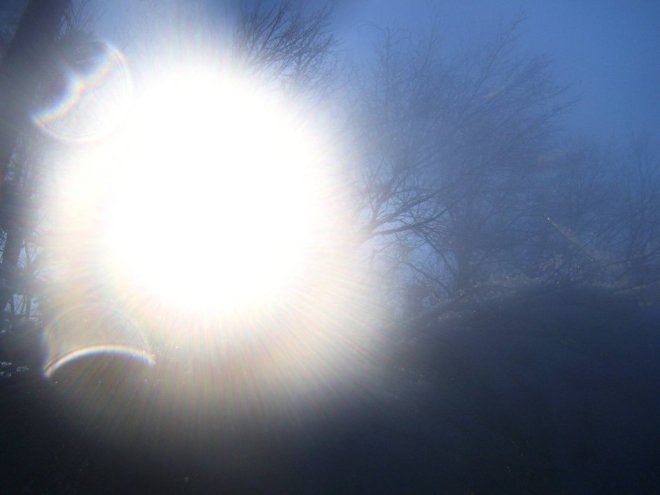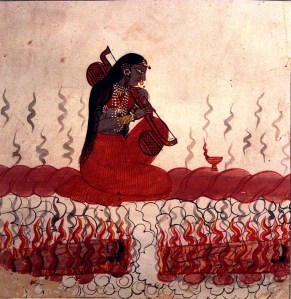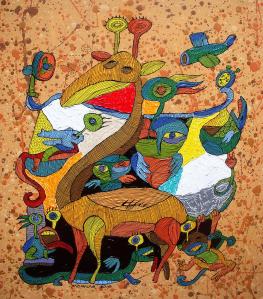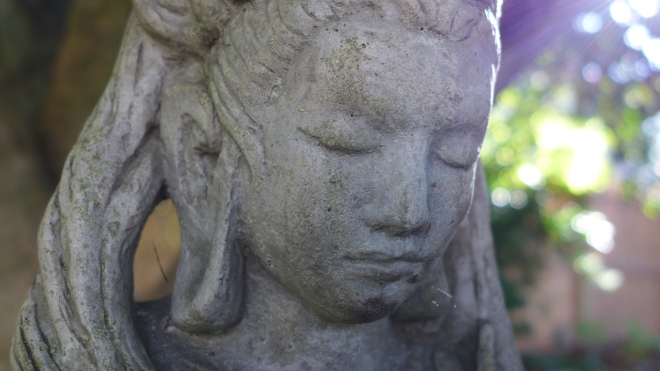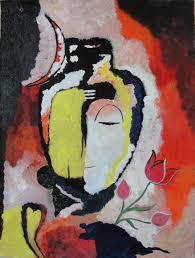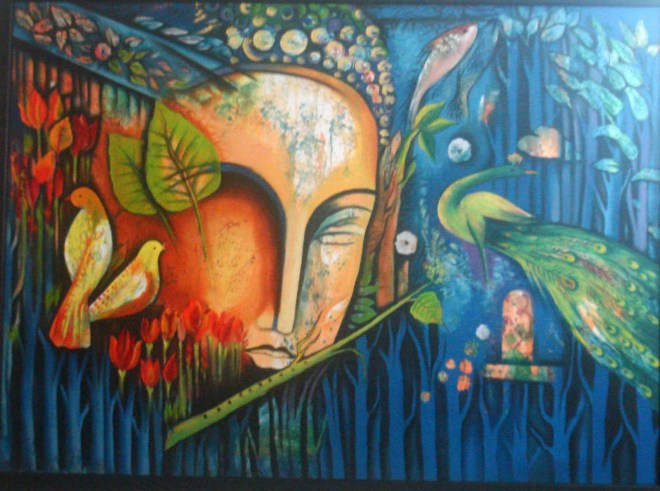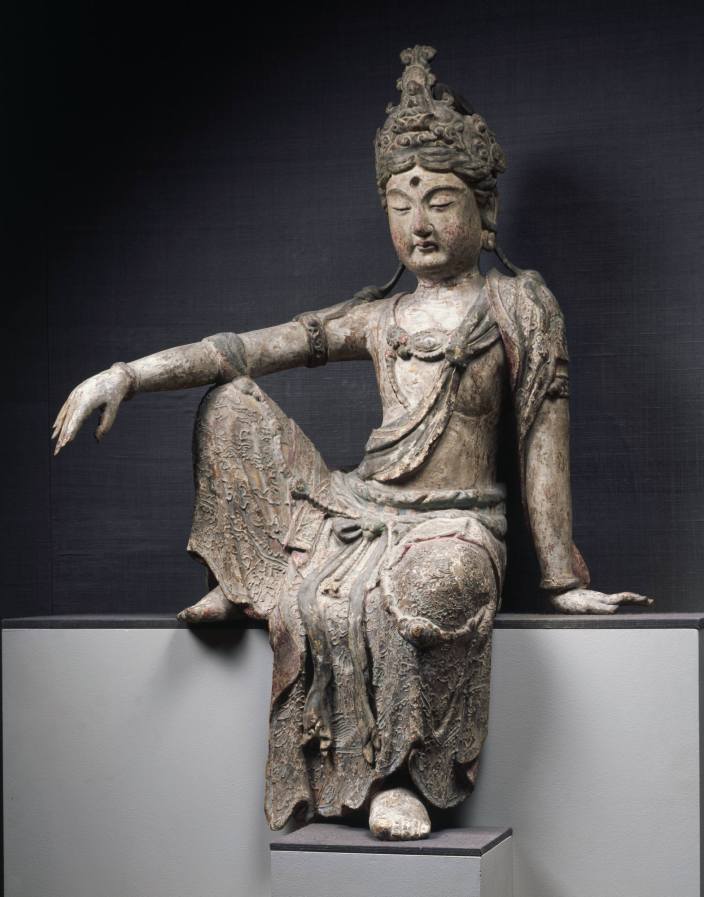 Seated Kuan Yin from the Princeton University Art Museum’s permanent collection.
Seated Kuan Yin from the Princeton University Art Museum’s permanent collection.
Life’s been so sped up these last few months, it’s been impossible to keep this blog current. My heartfelt apologies to everyone who looks forward to new content. This post should fill some of that long gap. I’m including audio from the last two classes of November.
Class on November 20th was a rather free-wheeling journey that wove the Tao Te Ching, Sri Lalita Sahasranama, and a Mary Oliver poem. It’s all there in the talk. Text of readings below. And scroll down below that for audio of mantra chanting…
11.20.17 OPENING DHARANA AND DHARMA TALK
READINGS FROM DHARMA TALK
From the Tao Te Ching
73.
The Tao is always at ease.
It overcomes without competing,
answers without speaking a word,
arrives without being summoned,
accomplishes without a plan.Its net covers the whole universe,
And though its meshes are wide,
it doesn’t let a thing slip through.* * * *
From the Sri Lalita Sahasranama
447.
Shanti
She who is tranquility itself.Shanti is evenness of mind in happiness and in sorrow, in profit and in loss, in victory and in defeat.
According to Shaivagam, Shanti is… that kala which dispels the three major types of impurities, anava, maya, and karma… It shows the way for those who are struggling in the illusion of maya and in actions contrary to one’s karma, forsaking one’s own dharma and embracing that of someone else.
Slipping away from one’s own dharma will not bring prosperity; it causes loss of shanti. The declaration in the Gita that “better is death following one’s own dharma; following another’s dharma leads to fear” is indeed a cornerstone for building a righteous life.
* * * *
from Mary Oliver’s A Thousand Mornings
HUM, HUM
1.
One summer afternoon I heard
a looming, mysterious hum
high in the air; then came somethinglike a small planet flying past –
somethingnot at all interested in me but on its own
way somewhere, all anointed with excitement:
bees, swarming,not to be held back.
Nothing could hold them back.
2.
Gannets diving.
Black snake wrapped in a tree, our eyes
meeting.
The grass singing
as it sipped up the summer rain.
The owl in the darkness, that good darkness
under the stars.The child that was myself, that kept running away
to the also running creek,
to colt’s foot and trilliams,
to the effortless prattle of the birds.3. SAID THE MOTHER
You are going to grow up
and in order for that to happen
I am going to have to grow old
and then I will die, and the blame
will be yours.4. OF THE FATHER
He wanted a body
so he took mine.
Some wounds never vanish.Yet little by little
I learned to love my life.
Though sometimes I had to run hard –
especially from melancholy –not to be held back.
5.
I think there ought to be
a little music here:
hum, hum.6.
The resurrection of the morning.
The mystery of the night.
The hummingbird’s wings.
The excitement of thunder.
The rainbow in the waterfall.
Wild mustard, that rough blaze of the fields.The mockingbird, replaying the songs of his
neighbors.
The bluebird with its unambitious warble
simple yet sufficient.The shining fish. The beak of the crow.
The new colt who came to me and leaned
against the fence
that I might put my hands upon his warm body
and know no fear.Also the words of poets
a hundred or hundreds of years dead —
their words that would not be held back.7.
Oh the house of denial has thick walls
and very small windows
and whoever lives there, little by little,
will turn to stone.In those years I did everything I could do
and I did it in the dark –
I mean, without understanding.I ran away.
I ran away again.
Then, again, I ran away.They were awfully little, those bees,
and maybe frightened,
yet unstoppably they flew on, somewhere,
to live their life.Hum, hum, hum.
[Please note I’m unable to input proper transliteration of Sanskrit and formatting of Oliver’s poem.]
AUDIO OF CLASS CHANTING SARASWATI AND OM NAMAH SHIVAYA MANTRAS
AUDIO OF CLASS CHANTING GAYATRI MANTRA WITH CLOSING DHARANA
AUDIO OF SG SOLO CHANTING BEFORE CLASS
11.27.17 AUDIO OF ENTIRE CLASS
November 27 was an all-chant class. Here’s the live recording from that. If you’ve never been to Monday Night Class, this will give you a sense of what it’s like to be in the room. This is very low-tech recording for music so do listen with gentle ears…
Finally, although I’ve stopped writing political commentary here, the age of Trump continues. Wreaking havoc on our democracy, international relations, the planet, and even outer space. If you want to embody Kuan Yin, whose name means, She Who Hears the Cries of the World, do click here to read Nicholas Kristof’s recent piece in the New York Times, and if you can, please make a donation to the Jamal family. Along with that, if you’ve not seen Ai Weiwei’s extraordinary film, Human Flow, it’s essential education for anyone who cares about life on this amazing extraordinary planet we all call home…

